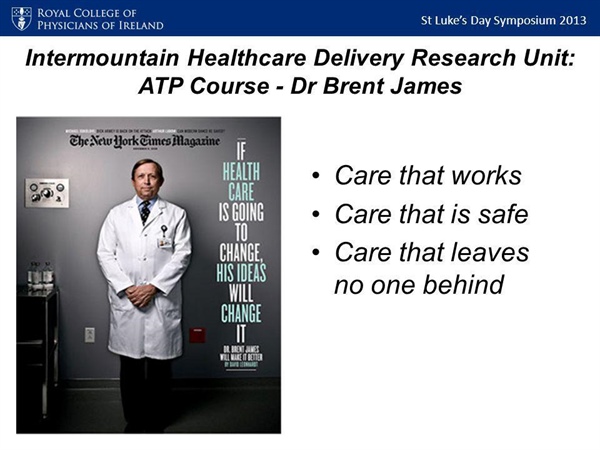During 2017 Saskatchewan’s Health Quality Council – in collaboration with the Saskatchewan Medical Association and the Ministry of Health – will pilot a new quality improvement program specifically designed for clinicians. Doctors and other health professionals will participate in the first cohort of the Clinical Quality Improvement Program (CQIP), which kicks off in January.
“One of HQC’s priorities is to build learning systems to spread knowledge across our province’s health care system,” says Dr. Gary Teare, Chief Executive Officer of HQC. “Clinicians are an important conduit in the system and this program enables them to spearhead a project with a clinical continuous improvement focus that can benefit Saskatchewan patients.”
CQIP is an 11-month course that is designed to build capability for leading improvement work, with a particular focus on clinical quality improvement projects. The program includes a mix of theory and experiential learning, along with individual coaching and a community of practice. Its primary target group is physicians who are actively practicing in a clinical context; however, other clinicians are also welcome.
This is a sister program to the internationally recognized mini-Advanced Training Program, which was developed by Intermountain Healthcare system in Salt Lake City, Utah. It has been adapted for the Saskatchewan health care system. In the past, HQC and the Saskatchewan Medical Association partnered to sponsor physicians (and others working in a clinical role) to attend the Intermountain program with excellent results.
“Intermountain in Utah is a leader in physician-driven, clinical quality improvement in the US,” says Dr. David Kopriva, a vascular surgeon in Regina. “A number of Saskatchewan physicians, myself among them, have been fortunate to attend the accelerated version of the Advanced Training Program in Health Care Delivery Improvement (miniATP), to learn how to apply clinical science to quality improvement in our practices. It’s exciting for us to bring these learnings back to Saskatchewan, and to help spread these techniques here at home.”
Some examples of the types of improvement projects that CQIP participants could undertake include: improving the treatment of community-acquired pneumonia in rural care areas, or improving access to diabetes education programs. For this first CQIP cohort, course pre-work goes from January to March 2017 and the program itself takes place from April to November 2017.
An application for CQIP can be downloaded here. Applications will be accepted from now until October 21, 2016 at 12 noon.



